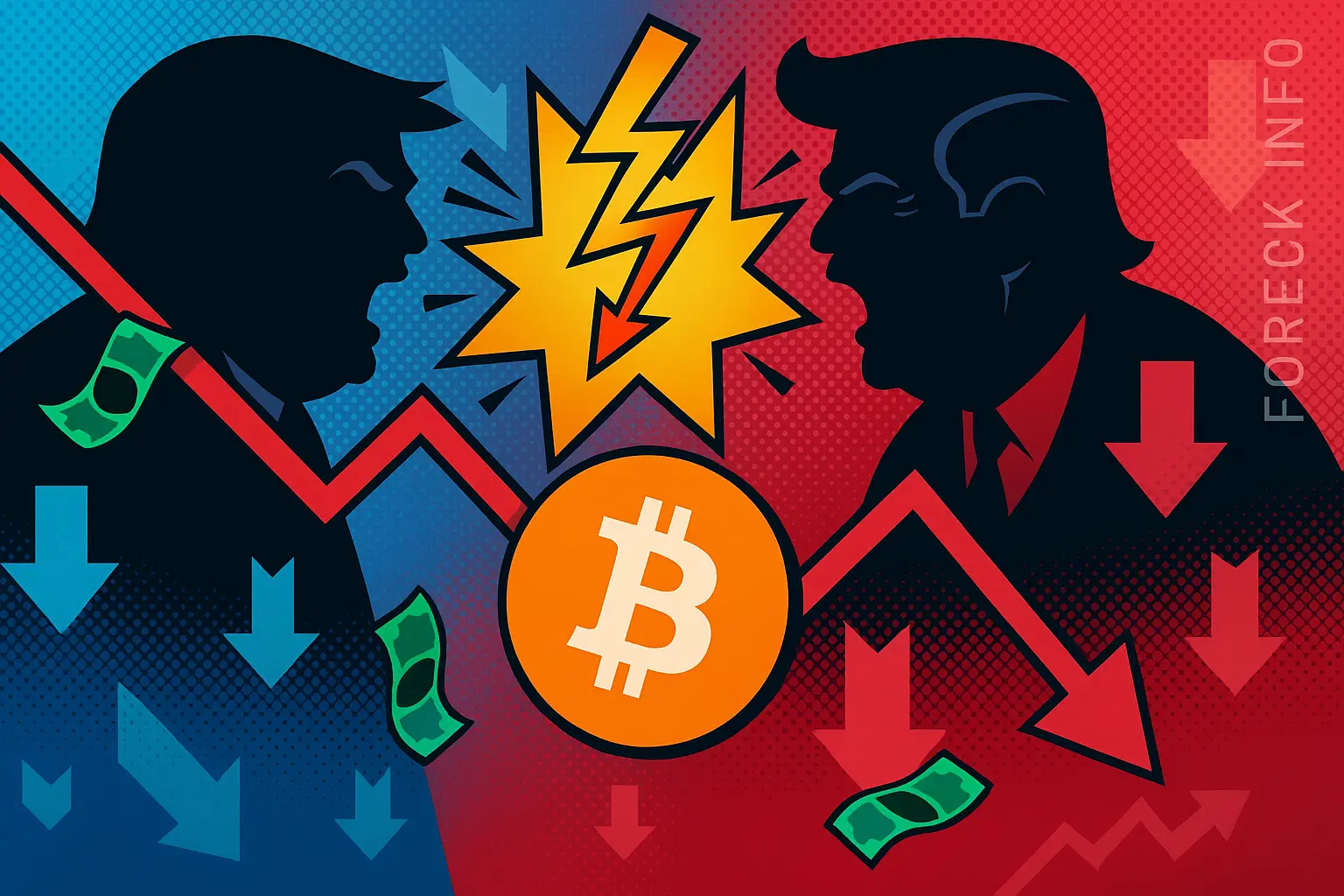In just 24 hours, liquidation volumes across crypto derivatives markets approached the staggering mark of 1B$, based on CoinGlass data. This market rout coincided with sharp corrections across leading stock indices, triggering an acute risk-off sentiment.
 Bitcoin price collapses to 100K$. TradingView.
Bitcoin price collapses to 100K$. TradingView. Although Bitcoin quickly regained some ground after the crash, the asset was still trading slightly below 103,000$ at the time of reporting. This episode set off a chain reaction, dragging down other major crypto assets. Among the top-10 by capitalization, Dogecoin fell by 7%, Ethereum lost 5.92%, and Cardano was down 5.37%. The majority of the 980M$ in daily liquidations were from long positions, with Bitcoin and Ethereum accounting for most of the losses.
 Crypto majors take heavy losses. CryptoRank.
Crypto majors take heavy losses. CryptoRank. Market volatility also shook the Crypto Fear & Greed Index, which plummeted by 11 points in a single day. Moving from the “green” (greed) to “orange” (fear) zone, this sharp drop signaled a sudden spike in market anxiety. A rapid shift in sentiment often precedes further volatility, as traders react emotionally to abrupt moves.
 Fear & Greed Index signals panic. CoinStats.
Fear & Greed Index signals panic. CoinStats. Traditional markets did not escape the carnage. The S&P 500 index fell by 0.53%, the Dow Jones lost 0.25%, and the Nasdaq 100 declined by 0.8%. Correlation between equity and crypto markets intensified as uncertainty spread across asset classes.
What Triggered the Market Sell-Off?
The primary catalyst behind the sell-off was an escalating conflict between Elon Musk and US President Donald Trump. On June 3, Musk took to X (formerly Twitter) to publicly criticize the “One Big Beautiful Bill,” describing it as “an abomination.” The legislation itself received mixed reviews; White House Budget Director Russell Vought argued that concerns over the bill’s impact on the deficit were exaggerated, while defending the proposed fiscal measures.
Trump responded by expressing frustration with Musk’s remarks, accusing the Tesla and SpaceX CEO of “going crazy” after losing the federal mandate for electric vehicles and being asked to step aside. Trump went further, suggesting that government spending could be curbed by ending subsidies and contracts for Musk’s companies. In response, Musk threatened to decommission the Dragon spacecraft and hinted that Trump would not have won the US election without his support.
The situation escalated when Musk referenced the Jeffrey Epstein case, alleging that Trump’s name appears in sealed court documents. Musk further fueled speculation by running a poll on X, asking his followers if he should start his own political party.
The fallout from this public feud was immediate: Tesla shares slid over 14%, the TRUMP memecoin dropped more than 18%, and Trump Media & Technology Group Corp. fell by 8%. This cascade effect extended to the broader crypto market, underscoring how political drama and high-profile personal conflicts can spark widespread volatility in digital and traditional financial assets.

